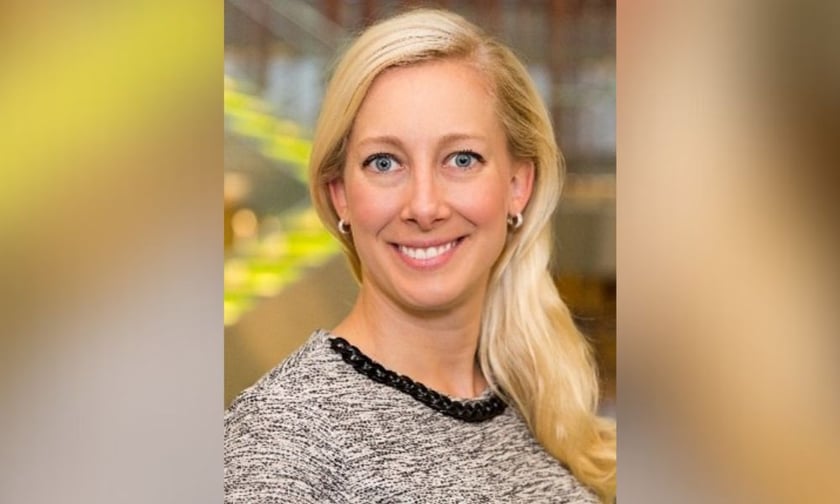Manulife and WEF look to handle ageing inhabitants pressures

Persons are residing longer – however not essentially more healthy or extra financially sturdy – lives and the World Financial Discussion board (WEF) has cautioned that the ageing inhabitants phenomenon threatens so as to add to pressure on economies and people throughout the globe.
The longevity economic system problem is one in all many points – from synthetic intelligence (AI) to geopolitical strife – tackled by world and enterprise leaders on the WEF Davos summit in January, and executives from international life insurer and asset supervisor Manulife have been on the forefront of discussions.
“It is a international difficulty, it doesn’t matter what market that you simply have a look at, and admittedly individuals of all socio-economic backgrounds are coping with this idea of longevity,” Manulife international chief sustainability officer Sarah Chapman (pictured) informed Insurance coverage Enterprise on her return to North America from Davos, the place the insurance coverage and asset administration enterprise introduced its funding in a long life innovation initiative.
In the meantime, WEF analysis has discovered that many individuals will not be prepared or capable of fund the latter years of their prolonged lifespans, one thing that the discussion board has sought to deal with by way of six key ideas.
From monetary instability and sudden profession breaks to social isolation and medical expense burdens, people and societies face a raft of boundaries to residing more healthy and economically sustainable longer lives.
What are the WEF’s six ideas for the longevity economic system?
The WEF has set out six ideas for the longevity economic system:
- Guarantee monetary resilience throughout key life occasions
- Present common entry to neutral monetary training
- Prioritise wholesome ageing as foundational for the longevity economic system
- Evolve jobs and lifelong skill-building for a multigenerational workforce
- Design programs and environments for social connection and goal
- Deliberately tackle longevity inequalities, together with throughout gender, race and sophistication
Manulife seeks to construct longevity options by way of WEF UpLink partnership
Toronto-headquartered insurance coverage and asset administration big Manulife hopes that its collaboration with the WEF on the three-year longevity UpLink initiative, which is about to assist innovators to construct longevity-focused options throughout finance, well being and well-being, will enable it to play a component in tackling international gaps that threaten to pile stress on individuals and economies because the ageing inhabitants pattern continues.
“We’re addressing this by way of our merchandise and our providers and our engagement with our clients, however we really feel it’s necessary to be invested in all phases of the innovation ecosystem,” Chapman mentioned. “However we’re probably solely going to handle the longevity problem with know-how options that we don’t even know are attainable but – and so for us, it’s actually necessary to be part of that early-stage innovation cycle as properly.”
On the UpLink Press Convention in Davos yesterday, Sarah Chapman, Chief Sustainability Officer at @Manulife spoke of how the way forward for well being is on the coronary heart of Manulife’s partnership with UpLink.
💡 Study extra about UpLink at Davos this week: https://t.co/vapxEZC4JJ #wef24 pic.twitter.com/AVMcTe7Col
— UpLink (@WEFUpLink) January 18, 2024
It’s the second 12 months working that Manulife has partnered with WEF open innovation platform UpLink, having in 2023 supported 21 early stage ‘ecopreneurs’ by way of two streams taking a look at forestry and the connection between planetary and human well being.
Shared worth – why Manulife’s WEF UpLink longevity partnership is not only about altruism
The newest multi-million-dollar UpLink longevity funding is just not solely altruistic. As a life and well being insurer, a more healthy inhabitants ought to show extra helpful for Manulife’s future backside line than an unhealthy one, and Chapman pointed to the idea of “shared worth”.
Firms have, in latest a long time, more and more appeared to shared worth and collective-impact initiatives to impact change, not only for potential reputational and trust-building advantages but additionally as a result of far-reaching issues at a societal and international stage threaten to affect their companies and could also be of such a scope that private-sector funding is required to deal with them, the Harvard Enterprise Assessment has reported.
Manulife’s work on longevity, then, suits into this broader pattern.
“It’s no secret that, as a licensed medical insurance firm, it’s in our curiosity to assist individuals be more healthy and reside longer,” Chapman mentioned. “It’s higher for our enterprise, it’s higher for communities and it’s higher for the world.”
“Belief in companies has been rising 12 months over 12 months for an extended time period, as belief in authorities, media and non-profit organisations both stalls or declines relying on the 12 months,” Chapman mentioned. “What that tells you is that folks need to companies to assist drive that change, and that modifications the function of firms – not solely do we have to have a voice in the appropriate and credible areas, however we have to assist drive change.”
Do you’ve an thought which may assist deal with the worldwide longevity economic system problem? What have been your key takeaways from the WEF at Davos this 12 months? Share a remark under.
Associated Tales
Sustain with the newest information and occasions
Be a part of our mailing record, it’s free!
